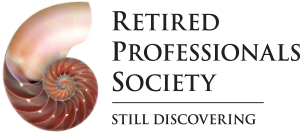- January 13, 2024
- Posted by: hzollo
- Category: March 2024, Speakers

RPS Presentation, March 13, 2024– John Foxe, Ph.D.- Wicked Problems and Brain Science.
John Foxe is the Kilian J. and Caroline F. Schmitt Chair in Neuroscience, Director of The Del Monte Institute for Neuroscience, and serves as Chair of the Department of Neuroscience at The University of Rochester. His research investigates the neurobiological bases of neurodevelopmental and neuropsychiatric conditions such as Autism and Schizophrenia. He uses electrophysiological and neuroimaging techniques to understand how inputs from the various sensory systems are combined in the brain, and what happens when these multisensory integration abilities are impacted by disease.
John has authored more than 340 research and clinical papers, book chapters, commentaries, and proceedings and serves as editor-in-chief of The European Journal of Neuroscience. Before joining the University in 2O15, he was director of research for the Children’s Evaluation and Rehabilitation Center at the Albert Einstein College of Medicine.
Originally from Dublin Ireland, John read English and History at University College Dublin (1987) before completing his BS degree at lona College, New Rochelle (1989). He obtained his MS and PhD in Neuroscience from the Albert Einstein College of Medicine in New York City (1999).
For more information, link to Dr. Foxe’s webpage at the UofR and his research lab website.
Wicked Problems and Brain Science Abstract
For almost 100 years, the University of Rochester has been at the forefront of investigating the “wicked” diseases of the brain with the goal of reducing the burden of neuro-related disease. For the last decade, I have led the Del Monte Institute for Neuroscience at the University of Rochester and have successfully cultivated collaborations between individual laboratories, centers, and departments focused on the nervous system across the University, while sculpting multi-investigator teams to more competitively confront and solve the “wicked” problems slowing discovery. The aim is to significantly speed the translation of new discoveries, and more effectively treat and prevent humankind’s most deadly and debilitating neurological and neuropsychiatric diseases.
Everything depends on synchronicity. In very simple terms neuroscience is all about improving our understanding of the connectivity between our neurons and the molecular soup that’s in our brains. That’s what creates your sensations, your perceptions, and your cognition, and if there’s something wrong with your cognition, there’s either something wrong with the soup or something wrong with tie connectivity of the networks.
In my own research group, we are particularly interested in children with intellectual developmental disabilities (IDD). These are complex diseases that are currently very hard to diagnose and treat. In 2020, the University was designated an Intellectual and Developmental Disabilities Research Center by the NIH, and I serve as its director. This federal designation joins two other federal awards related to IDD, giving a nod to the research, training, care, and community partnerships underway at the University. I would wager we are one of the leading institutions in this realm. The University has long been a Center of Excellence in Developmental Disabilities Education, Research, and Service (UCEDD) and held the training arm of recognition, the Leadership in Education in Neurodevelopmental and Related Disabilities (LEND). The UCEDD focuses on training and community service, while the LEND focuses on education. The three entities continue to innovate new collaboration opportunities
